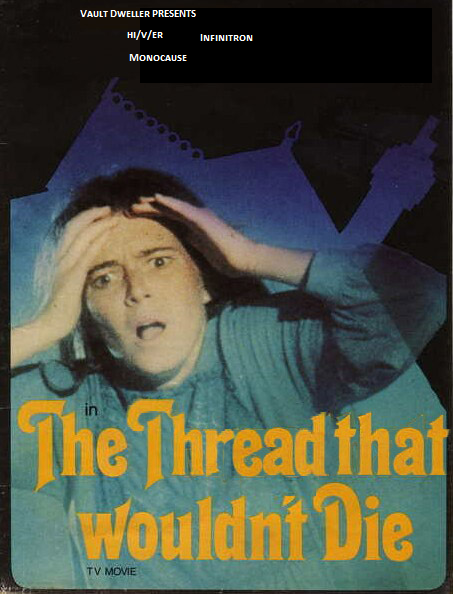Monocause
Arcane
- Joined
- Aug 15, 2008
- Messages
- 3,656
But what would you need them for? Let's say your writing a SciFi game. You want to include some plausible devices, so you spend some time looking at speculative fiction. Since it's speculative, people don't know if it could work, and will disagree with it, but these things will have some basis in fact. Now, if you want to include a quantum computer in your game, you don't need to know how the computer works. Hell, here I'm reading about how flash memory in a USB stick uses "quantum tunneling" to erase data. Does it? What does that even mean? I don't know, and I don't need to know to include a USB stick in my game.
Now, I'm not saying "learn quantum mechanics and create your own plausible speculative devices." I'm saying that if you want to look at plausible futuristic technology, there's already a lot of information out there. More than you'd ever need, and much more than any scientist or group of scientists could recreate in a couple of months. Since that information is already available to you, why do you need to hire someone?
I'm speculating that there's more to getting a scientific backdrop than that. Imagine that you're going into detail. OK, placing a quantum computer is fine, since you don't really need to explain it anyway. It's a part of the gameworld and will be accepted without much thought, just like you accept elves or dwarves. But let's say that over the course of the game you take the player through different environments - power plants, laboratories. You want one of the NPCs to be knowledgeable about tech, and you want the player to get the feeling "OK, this guy really knows what's going on". Here the plot thickens.
I can, after some brief research, do a mock up of how a high tech thing will look like or how it will basically function. But then I need to expand it in the game, make it mesh with the environment, make everything interconnected. What would be required for manufacturing such a thing? How would a laboratory working on improvements to such a thing look like? What problems would the scientists be facing (preferably something that the player would have to solve by searching for a mcguffin someplace dangerous)? And, most importantly, how placing such a device within the gameworld would affect it, change the lives of people, change the way they behave. Also, one scientific breakthrough leads to another (what would be the next step provided we have this thing covered, what would humanity try to achieve at this point?), and each imporant invention provides its own set of moral and ethical dilemmas which may or may not be relevant depending on the game you're making (DX:HR handled it superbly).
You can go down the route of a lot of games and make laboratories that are just white halls with people in labcoats using microscopes (you'd think that in the future people would have more advanced devices), or just state that "manufacturing this involves a lot of unobtanium". But that's kinda lacklustre to be honest, and it takes the "sci" out of "fi" almost completely. That's one of my gripes with the Mass Effect series, that the "lore" they had in the codex was completely separate from the gameworld and had really no impact, like fiction upon fiction. Felt like a ton of wasted potential. Heck, in the entire series you meet a lot of "scientists" and nobody strikes you as someone knowledgeable, they just have labcoats on and are otherwise completely bland NPCs, except for Mordin - but Mordin's completely over the top wacky. In some aspects the ME universe is extremely high-tech, yet in different (especially the social ones, but also regarding stuff like architecture or aesthetics) seems backwards compared to modern times. It makes the whole world crumble at closer scrutiny.
Time on researching all this from scratch and consuming the necessary knowledge to maintain the player's suspension of disbelief is probably a luxury that devs don't have. Especially in the case of relatively niche RPGs where a lot of the fanbase is the rather informed type and more demanding type.







![Glory to Codexia! [2012] Codex 2012](/forums/smiles/campaign_tags/campaign_slushfund2012.png)





























